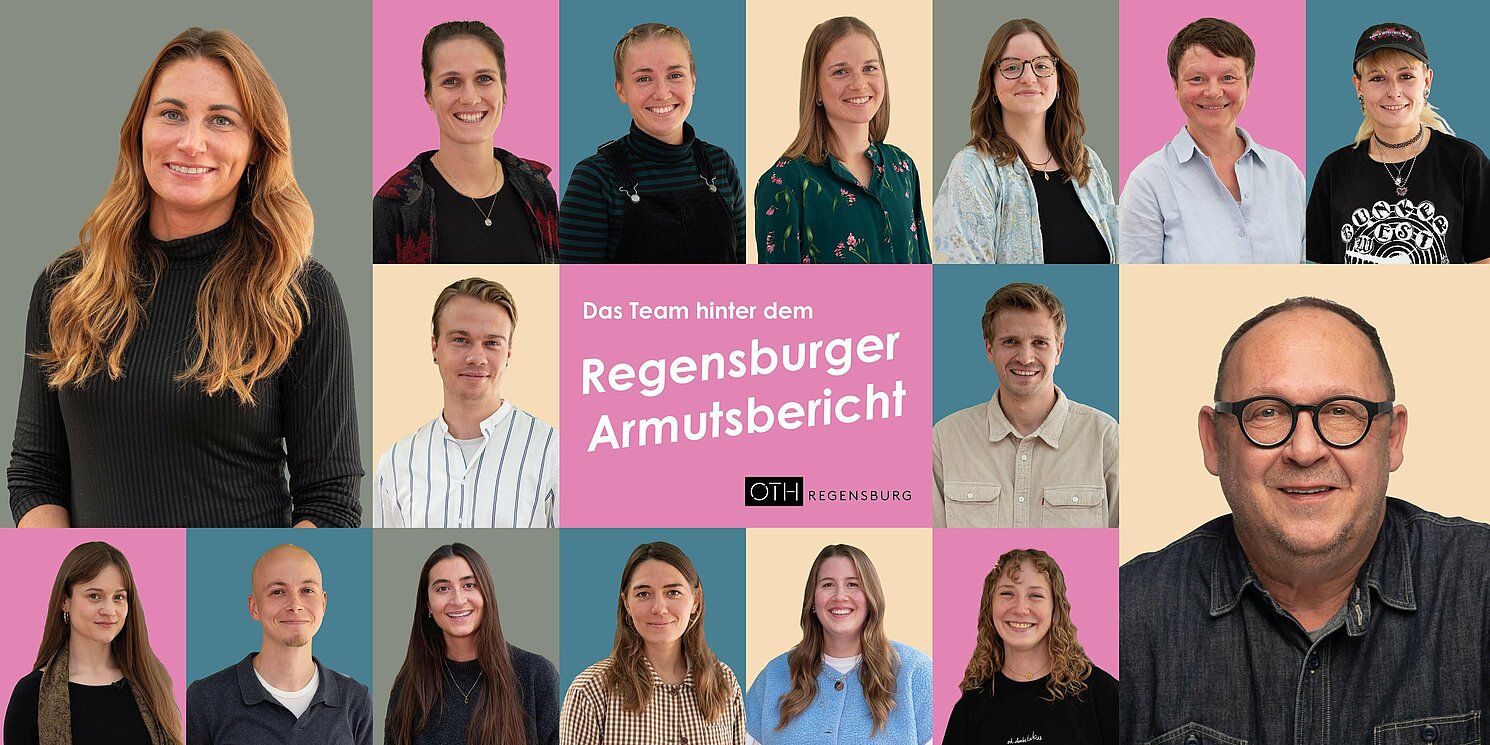Work on the new Regensburg Poverty Report began in autumn 2023. A team of students led by Prof Dr Ina Schildbach and Prof Dr Wolfram Backert from the Faculty of Social and Health Sciences at OTH Regensburg is working closely with the city of Regensburg. Quantitative questionnaires and interviews with affected people and experts from the social sector form the basis for the report. The team also analysed data from the city of Regensburg. The first results are now available.
The analyses show: Although Regensburg is considered a prosperous city, many people are affected by poverty. ‘Migrant poverty in old age and poverty among women in old age are particularly high in Regensburg,’ says Schildbach. One of the reasons for this is, for example, the lack of pension credits from abroad. ‘Many first-generation guest workers earned good wages in Germany. But the work they previously did abroad was not taken into account in their pension,’ explains Schildbach. As a result, they slipped into poverty in old age.
The last poverty report for Regensburg was published in 2011. A lot has changed since then. Inflation has driven up prices in Regensburg - especially rents. This further exacerbates the situation for poorer people.
Poverty has psychological effects
The work on the poverty report also revealed positive aspects: Regensburg already has a large number of voluntary and municipal organisations that offer help to the people affected. Offers such as the social feeding centre for pets or KulTÜR, which provides access to cultural events, are not available in every city. However, help is not always actually provided, says Schildbach: ‘Poverty often leads to shame. The people affected then don't dare to accept free tickets for a concert.’
More support is also needed in the neighbourhoods: ‘Older people are usually not mobile. They need contact persons and services in their immediate neighbourhood.’
Final results planned for March 2025
The final results of the poverty report should be available by spring 2025. This should also contain concrete recommendations for action. ‘It is important to us that this report does not disappear into a drawer, but leads to concrete aid measures,’ emphasises Schildbach. This is why, among other things, a website is to be created where affected people can find out about social organisations and services in Regensburg.
A series of events in spring 2025 will also focus on the different dimensions of poverty. Whether the social consequences of climate change or homelessness among women - the students at OTH Regensburg will present the results of their final theses to the public.

